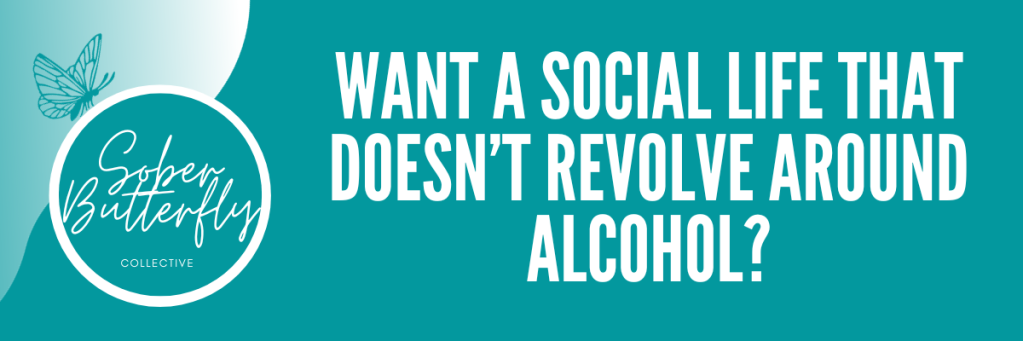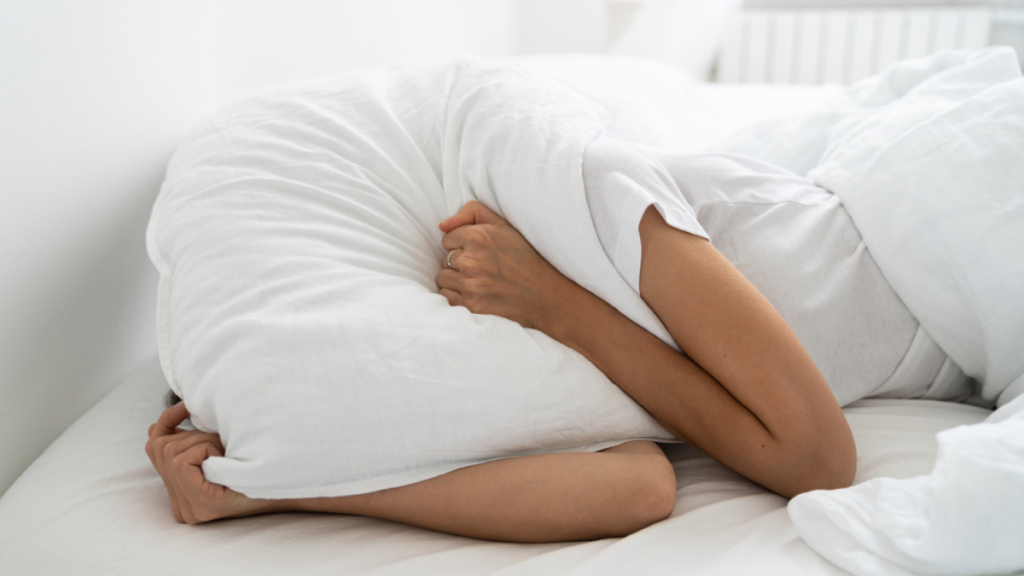Happiness is the ultimate goal we all strive for in our lives, relationships, and jobs. For centuries, alcohol has been closely linked with the good times. But is booze really making you happy, or is it actually holding you back from true contentment?
In our latest blog, we’re delving into why alcohol is standing in the way of your happiness and exploring what’s waiting for you when you finally take off those rosé-tinted glasses.
Why do we link alcohol with happiness?
It’s no wonder we associate alcohol with the good times.
Popping a bottle with your best mates; clinking glasses on date night; sipping that poolside cocktail on holiday.
It’s been second nature for your entire adult life, and a quick scroll of your Insta reinforces the idea that fizz equals fun.
In fact, alcohol has been used to celebrate life’s special occasions for centuries, with the act of toasting originating in Ancient Greece.
But even then, those sweet vibes quickly turned sour.
Eubulus, a 4th-century Greek poet, wrote:
I mix three kraters only for those who are wise.
One is for good health, which they drink first.
The second is for love and pleasure.
The third is for sleep, and when they have drunk it those who are wise wander homewards.
The fourth is no longer ours, but belongs to hubris.
The fifth leads to shouting.
The sixth to a drunken revel.
The seventh to black eyes.
The eighth to a summons.
The ninth to bile.
The tenth to madness, in that it makes people throw things.”
Sound familiar?
If you’re reading this, I’m guessing your booze-induced nights don’t usually end on a high, and moderation is a constant battle.
Is wine really making you happy?
So, you’re heading out to celebrate, and that first glass of wine is calling you from behind the bar (or maybe you pre-gamed at home to give yourself a headstart).
While the first glass gives you that warm glow of confidence and excitement for the night ahead, before long, you’ve lost your friends, sent that ill-advised text, fallen over, thrown up in your Uber, or all of the above (just me?).
If you relate, you’re not the only one.
The idea of moderating an addictive substance is exclusively applied to alcohol, and you’re certainly no freak of nature if you can’t manage it.
And do you know what? Just because that bar-room boomerang looked so glamorous, it doesn’t mean your Insta friends’ nights didn’t end the same way. But who’s going to share that, right?
Playing the tape forward is a common phrase in sober circles as everyone gets tempted by the idea of “just one glass” from time to time.
But if you’re being honest with yourself, does – or did – it ever end there?
Or was that quick high actually a gateway to Sunday morning depression and hangxiety over what you said or did?
How does giving up alcohol make you happy?
For many of us, it took a while for it to become clear that alcohol was preventing us from being truly happy, rather than the other way round.
SBC founder Hannah’s journey to sobriety started when she was at a point of feeling generally unhappy with her life.
She bought a notebook and wrote a list of her goals and dreams. Halfway down the list was the idea of limiting alcohol by attempting Sober October.
She says: “I didn’t just decide to be sober. I was unhappy and wondering, “how can I change this?” I had a good job and good friends. But there were things I wanted to do, and I needed to get clear on what was stopping me: money, time, energy, motivation.
“Remove alcohol from the equation, and it suddenly all fell into place. So when I stopped spending £100 on a night out, I had money to spend on things like a life coaching session.
“That, in turn, removed the anxiety to try new things, like going to a yoga class alone. And it just continued from there.”
Fake highs vs long-term contentment
Hannah isn’t alone here.
And in fact, relying on those short-term, artificial highs doesn’t just bring us back down to earth after. Instead, it leaves us feeling lower than we started.
For example, say you buy everyone a shot to get the party started and bask in being the life and soul. That buzz may last seconds, five minutes at the most.
The following day, you check your banking app, and that £40 round sent you overdrawn so that quickly-forgotten high didn’t just leave you mentally neutral. It plunged you into guilt, worry, and anxiety (and that’s before you even start panicking about what you said or did five Jagers deep).
Compare that to an investment of £40 in four personal development books that allow you to focus on yourself, identify any issues you face, and learn practical steps to boost your mental health every day.
What happens in our brains when we drink?
We’re all chasing that dopamine hit to feel good.
Dopamine sends pleasure signals to our brains, triggered by things like food, sex, and shopping.
When you drink, alcohol floods your brain with dopamine while simultaneously reducing your dopamine receptors.
This means when you drink alcohol regularly, you soon need more and more of it to replicate the original high.
Plus, you’ll feel lower and lower every time it wears off, as it doesn’t just return you to zero; it leaves you in a negative state, prompting feelings of anxiety and/or depression.
With that in mind, it’s crucial to be realistic with yourself about what genuine happiness looks and feels like.
What are the mental health benefits of quitting alcohol?
You may have heard about the “pink cloud” high many people experience in early sobriety. It’s a feeling of confidence and euphoria that can last for months.
And even once that “honeymoon period” of sobriety makes way for a more stable feeling of contentment, there are so many long-term mental health benefits of giving up alcohol.
These include:
- Reduced anxiety
- Decrease in depressive feelings
- Improved concentration
- More energy
- Better sleep
- Increased confidence
How do all of those compare to that temporary wine high that quickly turns into hangxiety, depression, and regret?
If you’re interested in exploring an alcohol-free life full of positive mental health benefits, we’d love to welcome you into the Sober Butterfly Collective.
Follow us on Insta for news on sober social events happening in your area – everyone is welcome to come and discover how to socialise sober and wake up feeling amazing!


Leave a comment